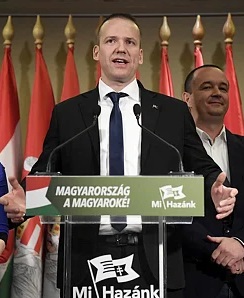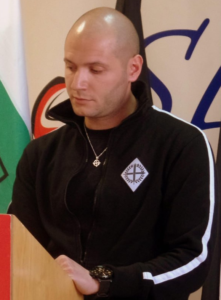
From Martin Sellner’s (left) English-language Telegram channel.

From Martin Sellner’s (left) English-language Telegram channel.
2,192 words
Left-wing German media outlet Correctiv reported on January 12 about a private meeting that happened last November in Potsdam, Germany between prominent figures in Alternative für Deutschland (AfD), a rapidly growing Right-wing populist party that is now the second strongest-polling party in Germany, and Austrian identitarian leader Martin Sellner. The topic of the meeting: remigration. (more…)











